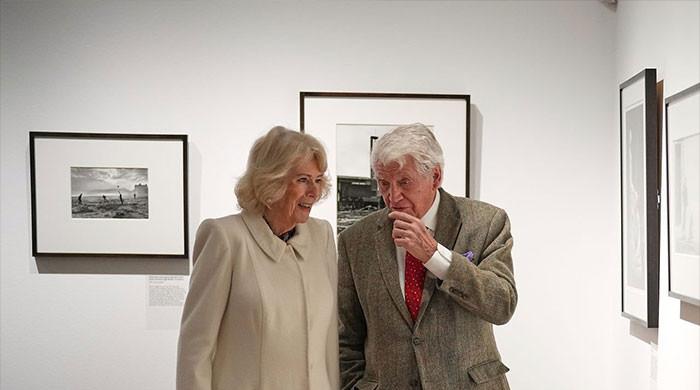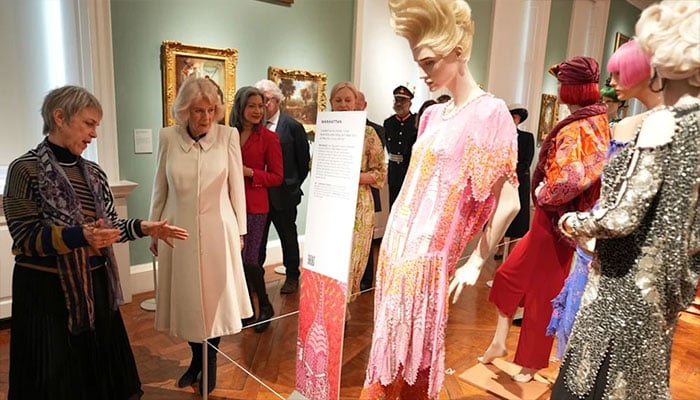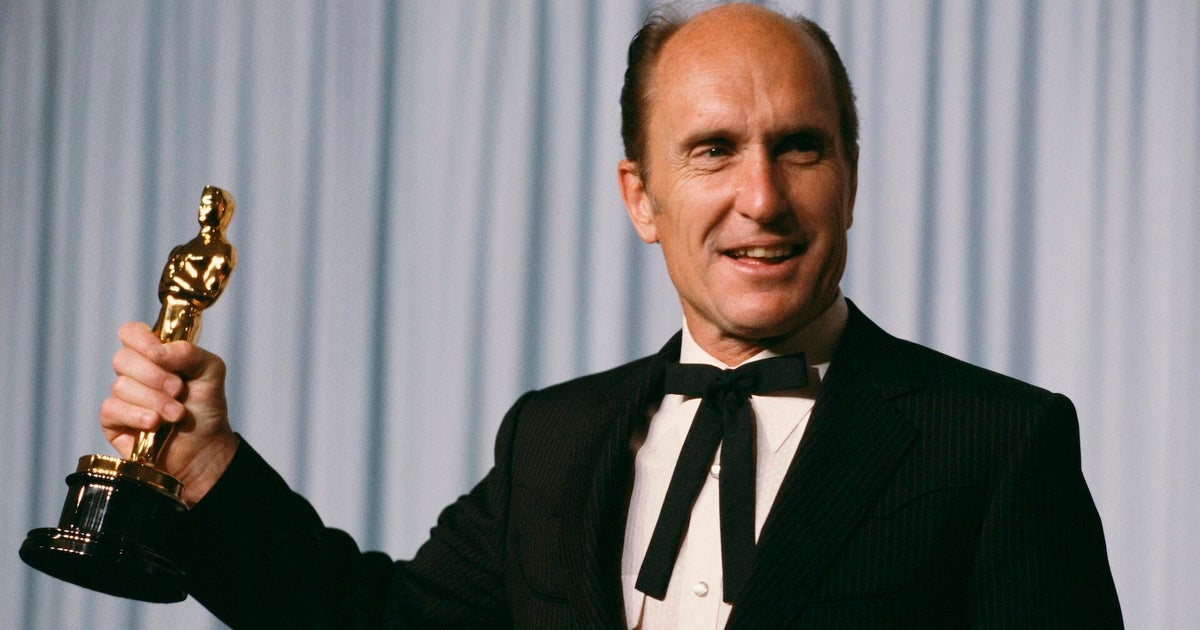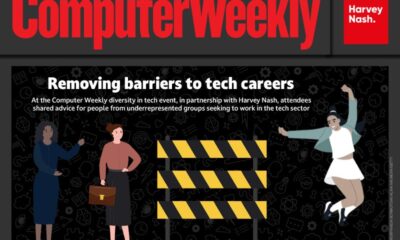Entertainment
Dwayne Johnson on tackling a dramatic role in “The Smashing Machine”

This picturesque farm in rural Virginia is Dwayne Johnson’s very private sanctuary, with a well-stocked pond that he usually fishes alone. “Just me,” he said, “and I’ll bring the girls here, and it’s magical. Just the way the property is set up, I never have to see anybody. And I know it sounds crazy, and maybe kind of weird, but that’s fun for me.”
I asked, “What does that do for you?”
“Peace,” he replied.
CBS News
Peace has been hard to come by lately. Last month, Johnson made his first trip to the Venice Film Festival, for what is probably the most ambitious film of his career, “The Smashing Machine.” He plays the real-life mixed martial arts fighter Mark Kerr, a two-time world champion who fought drug addiction and depression.
Johnson endured three hours of makeup and prosthetics a day to look like Kerr, and he’s never played anyone quite so real before. But it’s something he says he’s been aching to do.
“For years, I’ve been dreaming and hoping,” he said. “My desire was to play not only a dramatic role, but something that I felt like I could really sink my teeth into, and rip myself open. You hear that term. I just didn’t want to do drama. I wanted to do something that really allowed me to do that.”
To watch a trailer for “The Smashing Machine” click on the player below:
I asked, “This is a big, raw role. Did you have any doubts that you could do it?”
“When it became real, yes,” he said.
Director Benny Safdie paired Johnson with Emily Blunt as Mark Kerr’s volatile wife, Dawn Staples. The two last worked together in Disney’s 2021 film “Jungle Cruise,” the kind of film on which Johnson built his multi-billion-dollar career.
“I was chasing something for a lot of years, and what I was chasing was box office,” he said. “And there’s a part of me, the brain [that goes], ‘Don’t rock the boat. Stay in this zone. Everyone’s happy. You’re paying the bills.’ But the heart is like, ‘Yeah. But you’re not being fulfilled.'”
“Did you feel like that, you weren’t being fulfilled?” I asked.
“One hundred percent,” Johnson said. “But I was really nervous. And on day one, I remember Benny coming to me, and Emily as well, [they] said, ‘Are you scared?’ I went, ‘Yes.'”
“You flat out said, ‘Yes, I’m scared’?”
“Absolutely. I am.”
And Dwayne Johnson doesn’t scare easily.
His father was a professional wrestler, and with dad on the road a lot of the time, young Dwayne grew up with his share of trauma. When he was 15, Dwayne and his mom were evicted from their apartment because they couldn’t pay the rent.
He moved around a lot, and eventually started wrestling on local TV in Memphis, which he showed us in 2022.
We also saw where he stayed back then: a dilapidated trailer in nearby Mississippi.
The trailer park kid fought his way out of poverty, became the wrestling legend known as “The Rock,” and eventually moved into movies, from action (the “Fast and the Furious” series) to animation (“Moana”).
For “The Smashing Machine,” he had to find a way to transform into someone whose whole world was coming apart, like the scene where Mark Kerr loses his first fight. To conjure up the feelings of despair on camera, Johnson knew right where to go. “I went back to what it’s like being a 15-year-old kid and coming home and being evicted,” he said.
I asked, “You said it felt like you were ripping yourself open. What do you think that did for you, Dwayne Johnson, ripping yourself open like that?”
“The thing that I was running from, which was ripping myself open, is actually the thing that I needed the most,” he replied, “because it made me realize that the thing I love, which is acting and telling these stories, now I see it in a different world.”
These days, Johnson talks a lot about gratitude. At his property in Virginia, far from the trailer in Mississippi, he said, “Even more reason to be grateful.”
CBS News
One thing he won’t talk about: Oscar buzz. “No, no, I can’t, I can’t,” he said. “The thought that that is even a question? … You know, trailer park kid.”
The married father of three will be starting work on another “Moana” film soon, and also another drama. Yes, Dwayne Johnson will always be The Rock, but as any scientist can tell you, rocks can change.
This Rock, for one, seems smaller now. “Yeah. Svelte!” he laughed. “Because I’m preparing for a role.”
“So, this really is, this is like a new era for you?”
“It’s a new, I wouldn’t say, chapter. I would say new book. A whole new book. And I love it.”
WEB EXCLUSIVE: Extended interview – Dwayne “The Rock” Johnson
For more info:
Story produced by John D’Amelio. Editor: Steven Tyler.
Entertainment
Queen Camilla reveals her sister’s connection to Princess Diana

Queen Camilla got a cultural fix on Tuesday during a busy day in Bath, exploring the city’s arts and literary scene with curiosity and charm.
At the Holburne Museum, the Queen wandered through the exhibits with evident fascination, taking in each piece as curator Rosemary Harden guided her through the collection.
Her visit included the Zandra Rhodes: A Life in Print exhibition that brings a selection of screen-printed garments from the 1960s, 70s and 80s.
Camilla revealed a personal connection, “My sister Annabel Elliot had a wedding dress made by Rhodes,” she shared, nodding to the designer who also famously dressed the late Princess Diana.
The royal then made her way to Bath’s Theatre Royal, meeting staff and volunteers while checking out a new community studio.
She also unveiled a toy theatre, part of the theatre’s ongoing plans to create an engaging space for local families.

The Queen then rounded off her cultural tour with a stop at @PersephoneBooks, the independent publisher and bookshop founded in 1999, which specialises in reprinting forgotten gems mostly fiction and non-fiction by women writers.
There, she chatted with Francesca and Nicola Beauman, taking in the literary treasures that make the shop a Bath institution.
Entertainment
Robert Duvall, known for his roles in "The Godfather" and "Apocalypse Now," dies at 95

Oscar-winning actor Robert Duvall died on Sunday at the age of 95. Duvall starred in classics like “The Godfather” and “Apocalypse Now.” Vladimir Duthiers looks back at his career.
Source link
Entertainment
5 surprising facts about Mardi Gras you may not know

Streets are about to turn purple, green, and gold as communities celebrate Mardi Gras.
The celebration dates back centuries, preceding the Christian season of Lent.
Commonly known as “Fat Tuesday,” Mardi Gras is celebrated the day before Ash Wednesday, representing the start of Lent, 40 days of fasting and reflection leading up to Easter.
The tradition linked to European Christians serves as a final opportunity to enjoy rich foods before the more solemn season starts.
Here are some surprising facts about Mardi Gras that you may not know.
It’s a legal holiday in Louisiana
Mardi Gras is officially celebrated across the United States. However, the government of Louisiana declares it an official holiday. Considering how deeply the festival is woven into the state’s culture, the government offices and schools remain closed.
Mardi Gras colors have meaning
The official colors (purple, green, and gold) are not chosen randomly. In 1872, the Krewe of Rex in New Orleans assigned meaning to them. Purple represents justice, green indicates faith while gold is the symbol of power.
Mask wearing is required by law
Legal bodies in New Orleans have mandated float riders to wear masks. The rule dates back to the 19th century and was designed to encourage anonymity and social equality during the festivities.
UNESCO Belgium recognises it formally
The Carnival of Binche in Binche holds so much significance culturally that it was recognised by UNESCO as part of the Intangible Cultural Heritage of Humanity. Performers known as Gilles throw oranges into crowds as part of the celebration.
Largest free party in the U.S.
Mardi Gras is also known as the largest free party in the United States, attracting over a million visitors in peak years.
From medieval Europe to modern-day America, the celebration continues to blend faith, culture, and community. Mardi Gras is set to conclude at midnight.
-

 Business1 week ago
Business1 week agoAye Finance IPO Day 2: GMP Remains Zero; Apply Or Not? Check Price, GMP, Financials, Recommendations
-

 Fashion1 week ago
Fashion1 week agoComment: Tariffs, capacity and timing reshape sourcing decisions
-

 Tech1 week ago
Tech1 week agoRemoving barriers to tech careers
-

 Entertainment1 week ago
Entertainment1 week ago‘Harry Potter’ star David Thewlis doesn’t want you to ask him THIS question
-

 Fashion1 week ago
Fashion1 week agoADB commits $30 mn to support MSMEs in Philippines
-

 Fashion1 week ago
Fashion1 week agoSaint Laurent retains top spot as hottest brand in Q4 2025 Lyst Index
-

 Fashion4 days ago
Fashion4 days ago$10→ $12.10 FOB: The real price of zero-duty apparel
-

 Sports1 week ago
Sports1 week agoWinter Olympics opening ceremony host sparks fury for misidentifying Mariah Carey, other blunders







